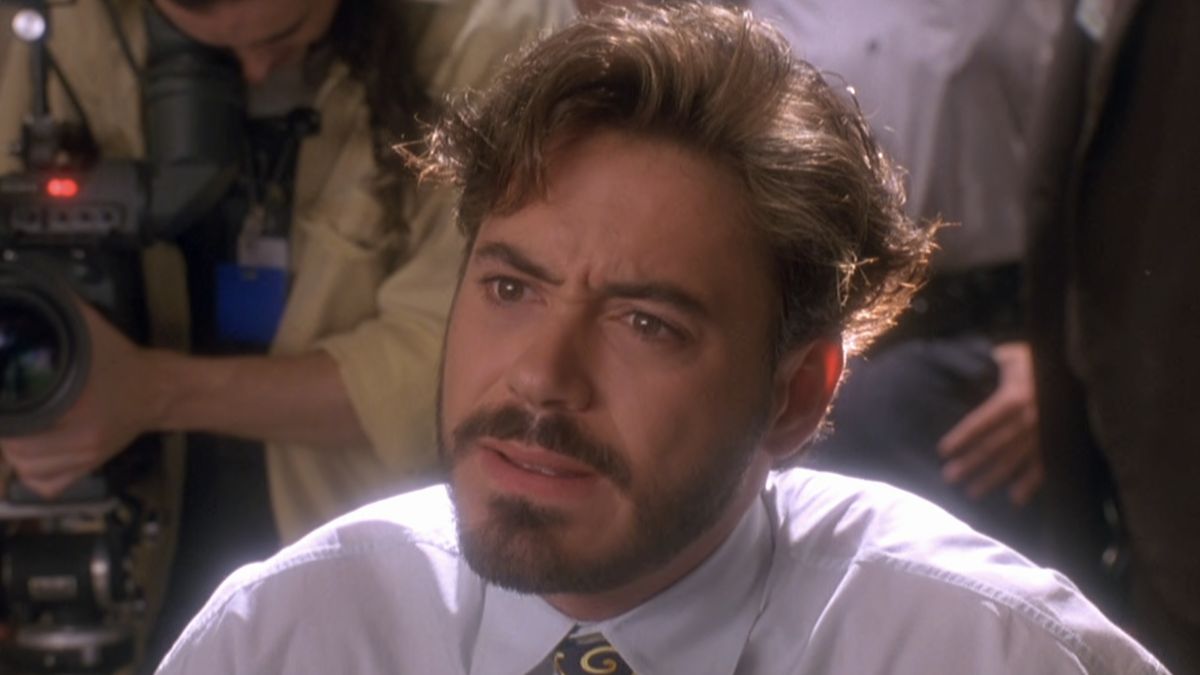Texas Ranger Darren Mathews wants out of his genre.
Or that’s what the husband of Attica Locke, author of the Highway 59 mystery trilogy, said when he finished reading Guide Me Home, Locke’s exceptional final volume in the series.
“It’s as if he’s kind of done with the cops and robbers of it all,” Locke says of Darren, the flawed lawman who first entranced readers in 2017’s Edgar Award-winning Bluebird, Bluebird. There, Darren slipped into seedy Aryan Brotherhood bars to help a grieving wife solve her husband’s murder. His uncle William was the first Black Texas Ranger, and Darren followed in his footsteps, wearing his silver star with pride. 2019’s Heaven, My Home saw him investigating the disappearance of a white supremacist’s son, as Darren’s marriage unraveled and his drinking got worse. Throughout both books, Frank Vaughn, a white district attorney with political ambitions, tries to expose Darren for lying to secure the freedom of an elderly Black man, who was accused of a crime he didn’t commit.
Guide Me Home is set three years after Heaven, My Home. Vaughn is still building his case, and a depressed, soul-weary Darren decides to take an early retirement from law enforcement. The very day he turns in his badge, his troublemaking mother, Bell, shows up uninvited at his family home. Bell blackmailed Darren in Heaven, and she is the key witness in Vaughn’s case. But she brings with her something Darren cannot resist: the kernel of a case. Sera Fuller, a Black college student, has gone missing, and the members of the all-white sorority she joined know more than they’ll admit.
Highway 59 snakes from the northeastern corner of Texas down through Houston, Locke’s hometown, and sweeps southwest to the border. “We would drive up and down Highway 59 all the time to go visit grandparents and relatives,” Locke tells BookPage from her home in Los Angeles. “And those car rides were my early kind of daydreaming out the window, thinking about stories, just making stuff up in my head.”
“I worry that readers would be like, ‘Wait a second. What are you doing here?’ . . . It has a different kind of energy about it.”
Locke often shifts from project to project, writing novels (Pleasantville, The Cutting Season) and for TV (Empire, When They See Us). The years she spent writing Guide Me Home were catastrophic: COVID-19, the murder of George Floyd and the 2023 Writers Guild strike all weighed heavily on Locke’s mind as she sent her hero hurtling toward ruin. She asks readers to grope around in the dark with Darren as he confronts truly painful truths, with the central mystery at times taking a backseat to his internal conflict and family drama.
“Darren is also just my whole heart,” Locke says. “And I worry that readers would be like, ‘Wait a second. What are you doing here? He’s not doing all the shoot ’em up, bang, bang, tough guy stuff. Where is all that?’ . . . It has a different kind of energy about it.”
And yet, Locke’s take on the missing girl trope is a standout in a genre that sheds girls like skin cells. While Sera is away at a nearby college, her family lives in an insular gated community called Thornhill, where families work in chicken and pork processing factories on-site in exchange for their cookie-cutter houses, K-12 schools and top-notch health care. As is usually the case, the utopian concept is, in practice, anything but. Rather, it’s a modern sharecropping system that keeps workers from ever accumulating wealth, all while they breathe acrid air from factories that might just be making people sick. Sera’s father, a Black Trump supporter named Joseph, has become a puppet for the rich white people who own Thornhill, ready and willing to be the Black face of the “movement” for “compassionate capitalism.” He is clearly lying when he denies that Sera has disappeared from her college campus: Her belongings are found in the trash, including her medication for sickle cell anemia.
Thornhill only truly clicked one day as Locke walked her dog: “I was thinking about two things that became really clear to people during COVID. We are not taking care of each other in terms of health care. It’s just really fucking difficult to be alive and have health care in this country. And capitalism does not give a shit about workers. . . . I’m realizing the ways in which COVID laid bare these two facts, and somehow they found their way into the soul and the plot of the book.”
The other valve in the dark heart of Guide Me Home is the aftermath of the election of Donald Trump and the escalating danger and sense of alienation it caused for Black Americans. Locke writes that Darren is “profoundly, unimaginatively sad in this world,” in the “fever dream that had been the years since Donald Trump was elected. Years that had laid bare the fragility of democracy.”
“This book series inadvertently became a treatise on the Trump era in a way that had not been intended,” Locke says. “I think in the series, Texas is often a stand-in for America. There’s a reason there’s that saying, ‘As Texas goes, so goes the nation’ . . . there is a sense that Darren’s ambivalent feelings about loving Texas are, I think, a mirror for a lot of people who have ambivalent feelings about how do we love our country through its worst impulses.”
Darren can’t imagine living anywhere else, even as the state constantly disappoints him. It disappoints Locke, too. “When I watch it from afar, it frequently breaks my heart to think of the Greg Abbotts of the [state] being what the rest of the world thinks Texas is,” she says, “when I know it to be, on the ground, infinitely more complex and infinitely less hateful. Now, I say that knowing full well that there are wild pockets of hateful people everywhere, and there are a lot of hateful people in Texas. But there are, I would argue, to some degree, more that aren’t.”
It’s not lost on Locke, or on Darren, that being a Black cop is complicated. As the series progresses, Darren is at odds with two competing ideologies handed down by the uncles who raised him, Texas Ranger William and defense attorney Clayton: Must Black people be protected by the law, or from the law? Locke lays this out in chapter one: “Sure, it was a sentiment among Black cops these days that ‘Black Lives Matter’ meant a gun and the law had their purpose—safeguarding Black folks in every corner of American life. But Darren felt resentful of the idea that Black cops somehow bore the sole responsibility for this. Surely it was someone else’s turn to do the work of righting the country’s racial wrongs, case by trauma-inducing case.”
“It frequently breaks my heart to think of the Greg Abbotts of the [state] being what the rest of the world thinks Texas is.”
Locke echoes this yearning: “There is a limit to what Black and brown folks can do alone to right some racial wrongs. And we kind of need help. And the hope is always that there will be folks who will consider that, just like I didn’t ask for the history on my back of slavery . . . You [meaning this white interviewer] also didn’t ask for all the privileges. You didn’t ask for it, but it’s real. So what do you do with it?”
All of this comes to bear on Darren’s psyche and heart. His alcoholism, present but not destructive in the first two books, is now raging. And his upbringing, developed marvelously in Bluebird and Heaven, comes into question. As an infant, Bell relinquished him to his uncles, and she’s breezed in and out of his life ever since, growing more manipulative and nasty with each episode. Her blackmailing him was the last straw. Darren’s trauma over her abandonment was so severe that he never asked her what happened, but took his well-meaning uncles’ version of the story as the truth. As he investigates Sera’s disappearance and Thornhill’s suspicious origins, he uncovers questions that only Bell can answer. Locke, whose daughter starts college this fall, hopes Guide Me Home will “flip how children see their parents.” The book’s dedication—“For every mother whose child knows only half the story”—conveys this hope, and Bell’s as well. Darren can only find home once he solves one final mystery, that of his own origins.
The Highway 59 series closes during the 2019 holiday season. In a few months, a global pandemic will take over the world. Darren has no idea what’s coming, but, thanks to Locke’s brilliant storytelling, readers will have faith that he’ll be all right.
Photo of Attica Locke by Victoria Will.








